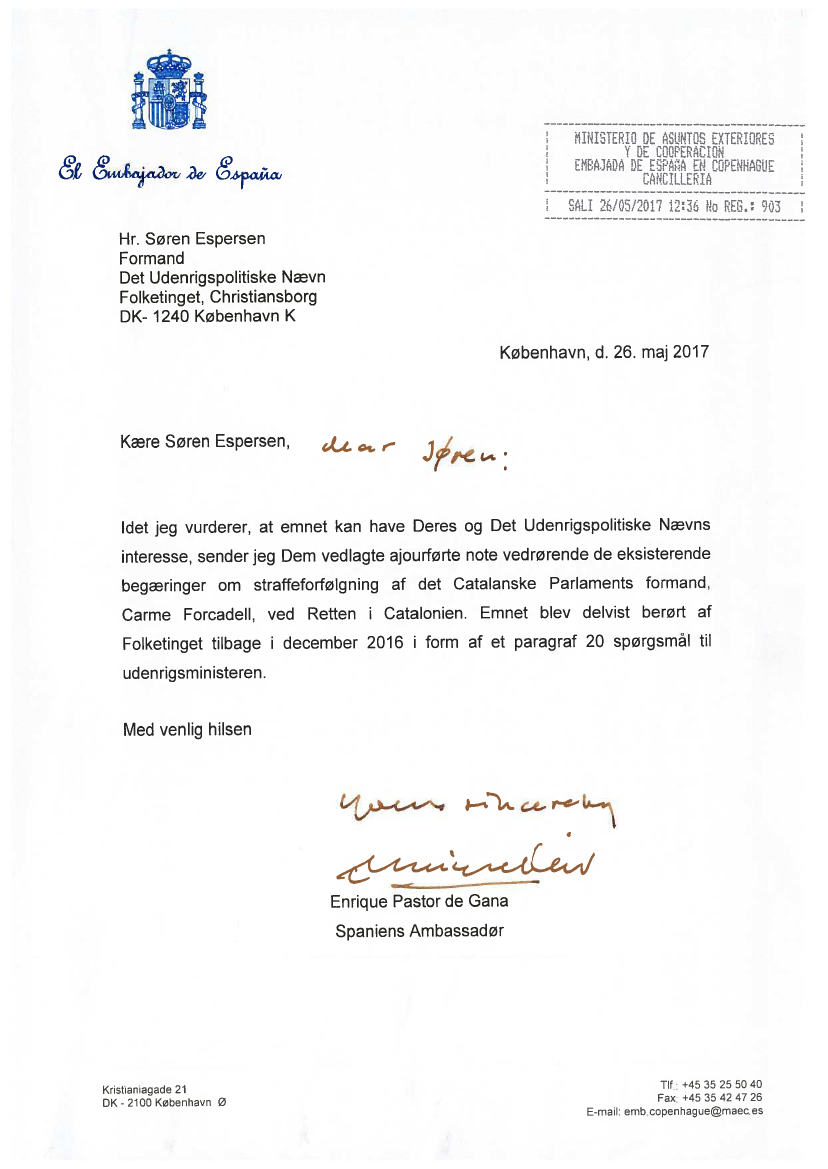
&
&Wöv
2
iP1ISTERiD DE ASUNTOS EXTER1OR:E5
LÆ
: tE3
LHLLUL1
8LI 26/05/201.? i23% No REG 903
Hr. Søren Espersen
Formand
Det Udenrigspolitiske Nævn
Folketinget, Christiansborg
DK- 1240 København K
København, d. 26. maj 2017
Kære Søren Espersen,
Idet jeg vurderer, at emnet kan have Deres og Det Udenrigspolitiske Nævns
interesse, sender jeg Dem vedlagte ajourførte note vedrørende de eksisterende
begæringer om straffeforfølgning af det Catalanske Parlaments formand,
Carme Forcadell, ved Retten i Catalonien. Emnet blev delvist berørt af
Folketinget tilbage i december 2016 i form af et paragraf 20 spørgsmål til
udenrigsministeren.
Med venlig hilsen
L4pc.i,%.
‘4-
,-
Enrique Pastor de Gana
Spaniens Ambassadør
Kristianiagade 21
DK-2100 København ø
Tit.: +45 35 25 50 40
Fax: +45 35 42 47 26
E-mail: embcopenhaguemaeces